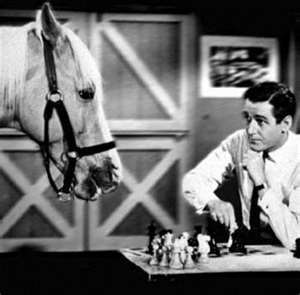Quote:
I'll respectfully disagree with this comment. Sheep are just as finely attuned to the fear response of a herd and have an incredibly strong fight or flight ....more so, in fact, than any domestic horse I've seen.
When it all comes down to the bottom of the bottom, any animal sent to a slaughter house has pretty much a fear and anxiety response to the experience...if you've ever taken a group of animals in, you can see this very plainly.
I've raised both horses and sheep for over 30 years, and I've watched both sheep and horses fight for what I'm sure they believe is their lives, and for escape. I've been right there with the handling and slaughter of all but one of the sheep we've ever culled.
it is my observation that fear and flight are much the same, but many horses will fight until they are no longer physically able, while sheep often give up. while I don't know what their experience is, no one can, I do know they behave differently at the point where it's reasonable to think they fear for their lives.
..........
there are slaughter houses and there are slaughter houses. something near half the cattle processing plants in this country have cattle handling facilities that were designed by Dr. Temple Grandin. If you're not familiar with her or her work it's worth looking up. she's a severely autistic woman who has found a way to function despite her very non-standard brain, a vet, and an animal perception and handling expert.
if you look at slaughter houses in a practical way, they're a business with a bottom line. things like frightened and stressed animals affect their profits. it takes more people to handle the animals which increases cost. there are more injuries and deaths to the livestock which reduces profit. stress and injuries reduce the quality of the meat, making them less competitive than other slaughterhouses. what they need is a process where cattle move easily without a lot of manpower, without significant fear, without having to be prodded with a hotshot, without hurting themselves or other cows. to have that, they need a system where cattle are calm, relatively unafraid. in other words, not a traumatic experience.
there are specific standards for judging the cattle's level of fear. percent of animals vocalizing. number of times a hotshot has to be used in a group to keep them moving. number of injuries to livestock or handlers. percentage of processed meat showing bruising or stress related damage. those are quantifiable measures that tell you how stressful the animals find the experience. while it's not possible to know exactly what the animal experiences, it's possible to measure the responses that are directly tied to fear and stress.
What Dr. Grandin does is design systems for handling cattle (and other livestock) that keeps the animals calm and as unafraid as possible, giving them as little stress as possible, while still making a slaughter house functional.
THAT is what I'd be interested in seeing for horse slaughter facilities. I think there is a need, but my concern is that it won't be done humanely. if appropriate handling and holding facilities are used, while still sad, I think it's a reasonable solution.




